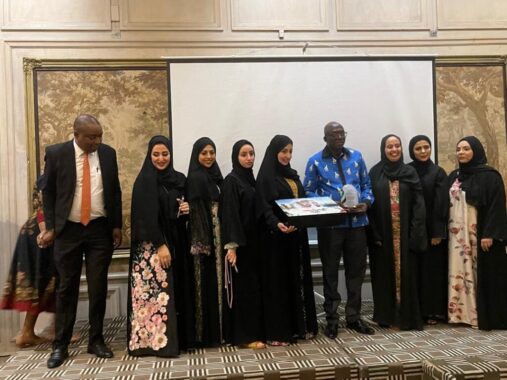Jaspro appeals for assistance to register operations with SAZ

Fairness Moyana recently in Jambezi
FARMERS operating under the Jambezi Small Grains Producers Association (Jaspro) banner, are appealing to Government to assist in speeding up the process of regularising their operations with the Standards Association of Zimbabwe (SAZ) for them to penetrate larger markets to sell their produce.
Jaspro, a community-owned and run company, was commissioned in 2014 and has over the years been struggling to yield the expected results largely due to a lack of funding to register its operations with SAZ.
The setback has resulted in retailers shunning the company’s products, citing fears over its failure to display expiry dates on its millet and sorghum. A 5kg bag of millet costs US$5 while sorghum is pegged at US$5.50.
In an interview during a recent Smallholder Agriculture Cluster Project sponsored field day in Jambezi, Jaspro chairperson, Mr Philip Tshuma, said their failure to register with SAZ continued to affect their operations and stalled their efforts to expand.
“We desire to mill at a large scale, but we have been faced with challenges of getting papers from SAZ that would enable us to do that. Even when we process our products, we have challenges in distributing them to supermarkets because they do not have the expiry date,” he said.
“We have a desire to expand our operations to a large scale, but we should be registered with SAZ first, so that we mill our products bearing a shelf-life tag. We are trying by all means to engage partners and stakeholders.”

Meanwhile, Jaspro supervisor, Mr Bernard Mpofu, said they were also working on professionalising the company’s operations, by engaging qualified personnel to run their accounts and market the products.
“We have a serious deficit in the knowledge of how to effectively operate and explore new markets, as we do not have money to pay personnel.
“This has forced us to continue using committees, some of whom were responsible for the construction phase of the project and are no longer relevant,” he said.
“What we want is to run professionally. We want to hire skilled labour and have someone taking care of our books and marketing the products.”
The project operates from a large warehouse and a fully equipped farmhouse with milling machinery, storerooms, a sales hall, packaging and milling facilities.
In 2014, a total of 17 families and farmers came together and formed the Jambezi Small Grains Seed Producers Association to add value to small grains by milling and packaging them to fetch better prices.
The project sought to address food and nutrition insecurity challenges faced by vulnerable households. It was also meant to help households in the drought-stricken district to broaden their economic activities.
Matabeleland North provincial director for the Agriculture Advisory and Rural Development Services in the Ministry of Lands Agriculture Water, Fisheries and Rural Development, Mr Dumisani Nyoni, said efforts were underway to address the challenges faced by the farmers.

Climate change
“Jaspro was born out of the Government’s drive to promote the tilling of small grains as a response to climate change. We are aware of the challenges of regularisation that the association is facing in ensuring that they penetrate both local and regional markets with their products,” he said.
“We have since engaged the Ministry of Industry and Commerce, who are seized with the matter. When we are now thinking of exporting to other markets like Zambia, the production volumes become an important factor to consider.”
Mr Nyoni said they are capacitating farmers with skills and resources to increase the volumes of millet and sorghum that would translate to good production levels, to meet the market demands.
The association has 1 092 members drawn from 11 wards of Hwange and Binga districts.
SACP is supporting farmers in four provinces by equipping them with farming skills, small irrigation schemes rehabilitation, market linkages and resources.
It has also availed US$15 000 in funding, to support farmers to improve their yields, with emphasis on the production of small grains, which are drought resistant and have a high nutritional value.










Comments